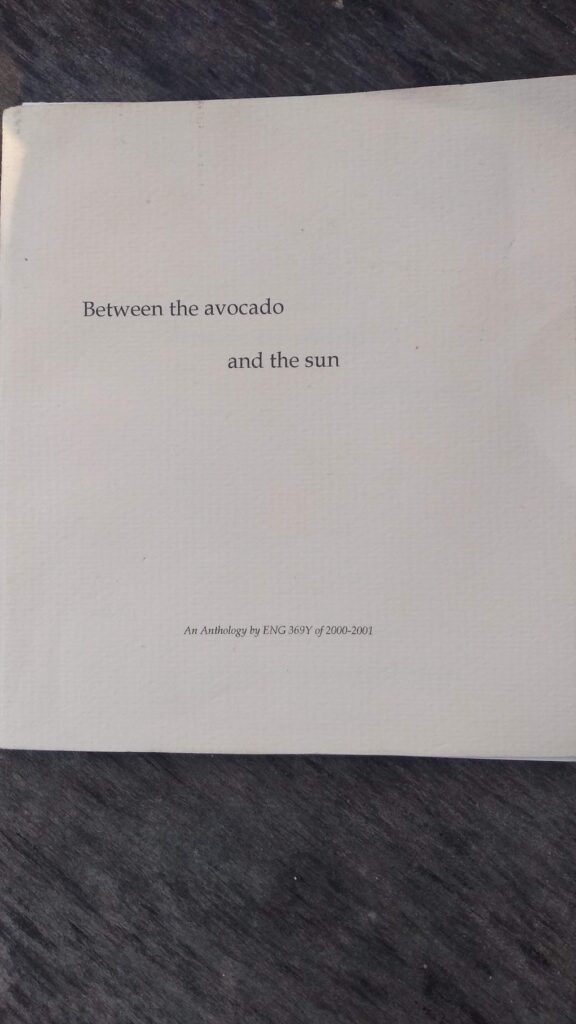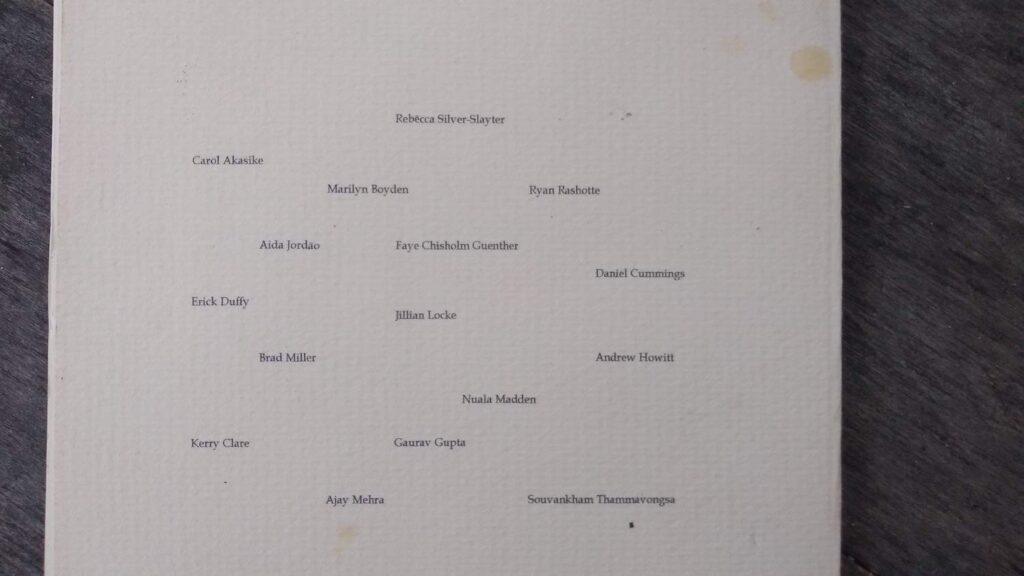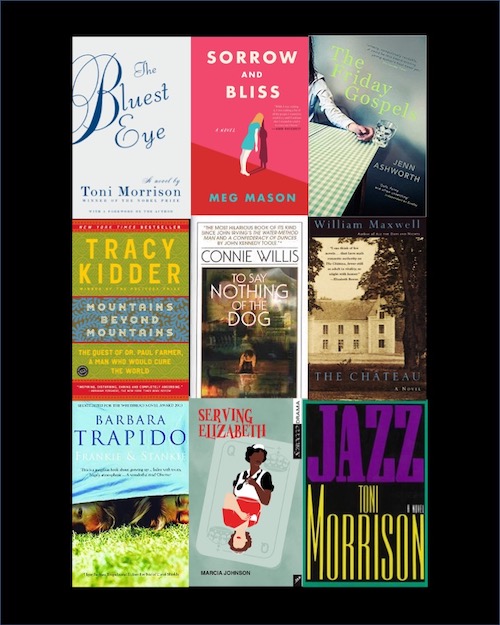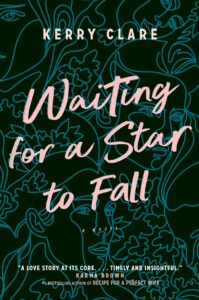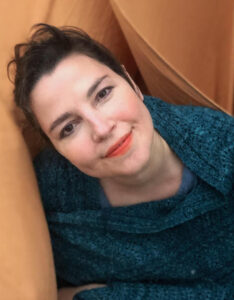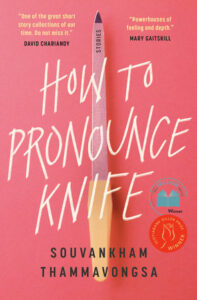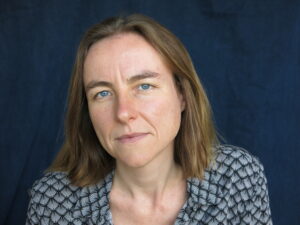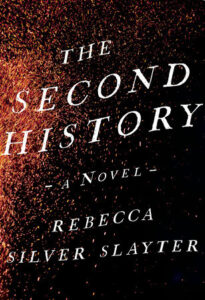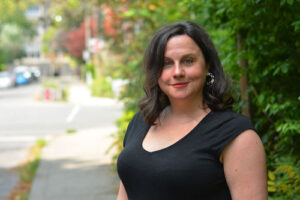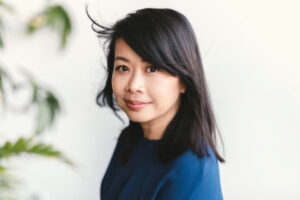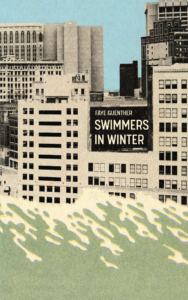January 13, 2025
Ways To Read More in 2025
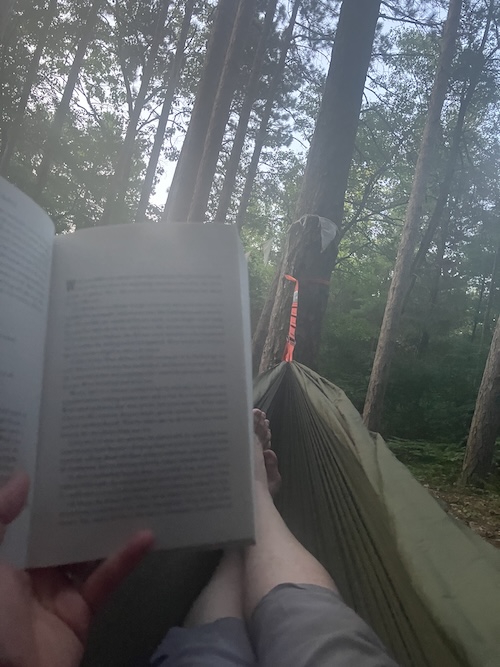
I’m of two minds about this post. First, I am allergic to the ways in which online writing has become so prescriptive, which means that online reading has become about emphasizing the ways in which we’re all doing it wrong and are in need of optimization. This is everything I’ve been turning away from as a writer and a reader, and what I’m abjectly refusing for this new year. If all this striving was turning us into happy and satisfied beings, I’d be okay with it, but it’s not. (A book I read last year that clarified this was Meditations for Mortals.)
HOWEVER (and this is self-serving as someone who earns a living from books and publishing and also dreams of a world in which literature occupies as much cultural attention as reality television) aspiring to read more is a resolution that’s different from trying to lose 15 lbs, develop an entirely different personality, or make a fortune in a multi-level marketing scheme. I also think it’s an aspiration that, if you’re realistic, fair and easy on yourself, really can make you a little bit better off.
Further, I read 214 books last year, which is more books in a year than I’ve ever read in my life, so I know what I’m talking about. And I’m sharing the number 214 because having read so many books in a year is actually the single most impressive thing about me; I don’t run marathons, I don’t have pretty fingernails, I last won a literary prize 20 years ago for a story that was terrible—so please just let me have this one thing. If your own reading goal ever seems paltry compared to mine, remember that comparison is the thief of joy and you do you… but how about doing you with a just a little bit more time for reading?
Here are my tips for how to find some.
1) Get Your Blood Checked
This was a game changer for me! I went to donate blood last January and was refused because my iron count was too low, which was not surprising since I’d spent the last six months (during which I was otherwise well) struggling to get out of bed in the morning, feeling very much like a hibernating bear. So I started taking iron supplements (Floradix, the vegetarian variety that doesn’t cause digestive issues) and waking up an hour earlier (um, not too early—I will never been an early riser) and I decided to spend this bonus time not getting out of my cozy bed, but picking up the book on my bedside instead. Which is so much time for reading, not to mention a really lovely way to start each day.
And so if you, like me, are not particularly youthful, and you’re one of those people whose eyes fall down every time you curl up with a book, getting bloodwork done might be something to consider.
2) Put Your Phone (Far) Away and Delete Socials
It’s much easier to wake up in the morning and pick up a book if your smartphone is out of reach. Mine charges overnight far away from my bedside, and I wouldn’t have it any other way. I’ve also deleted the only social media app (Instragram!) that had remained on my phone, which has freed up so much space in my mind and hours in my day. I still use social media on my desktop, and download Instagram once or twice a week to post and share other people’s posts in my stories (which I can’t do on the desktop) but I delete the app once I’ve finished.
And yes, it means I’m a little less connecting to the quotidian details of the 3000+ people I follow on Instagram, but maybe that’s okay…?
3) Find Your Desert Islands
Once your phone is out of reach, you’re on your way. I like to find opportunities to be stranded someplace with a book and nothing else for distraction. The bathtub is my favourite place for this, but so is the coffee shop at the block near where I drop my daughter off at an extracurricular every week for an hour and a half. Along those lines, going out for lunch with just a book for company is one of my favourite indulgences. If nothing else, I try to read between 9pm and 11pm every evening when nothing else is going on. If you tend to spend that time streaming television, maybe consider designating one night a week for reading instead? (I rarely watch TV, which I do think [in addition to my robust iron counts these days] is the most important answer to the question of how I find the time to read.)
4) Make It Easy
Reading doesn’t have to be a chore. It should actually be fun. And while some people’s idea of fun is Middlemarch or War & Peace, accepting the reality that you’re not such people (if you’re not such people) will go a long way toward having your reading habits take hold. Which is to say: read the kind of books that make you relish the turning of pages. Yes, reading widely and challenging yourself is a great way to read, but if you’re striving to read at all, making the experience purely a delight will help a lot. Read short books! Quit books you’re not enjoying. Ignore the books you think you should be reading. Don’t be afraid to trust your tastes and instincts, and to steer your own reading ship.
5) Build a Framework
And along those lines, I like a reading project. I’ve taken on a whole bunch of these this year (more to come in my January essay for paid subscribers), one of which is #WinterofStrout, as I go back and read every book Elizabeth Strout has ever published. I reread all of Madeleine L’Engle’s Austens series back in 2019. In March 2020, which I found it hard to read anything, I found my back to books by rereading Kate Atkinson’s Jackson Brodie books.
If there’s something that interests you, an author you’ve been meaning to get around to, any particular kind of book—books set in a certain place or time period, award-winners from a particular decade, a particular segment of the books already waiting on your to-be-read shelf, anything that might seem fun, and feel good and satisfying—steer your reading ship that-a-way, and let the literary magic happen as those books weave their way into your day-to-day life.
November 4, 2024
25 Hours
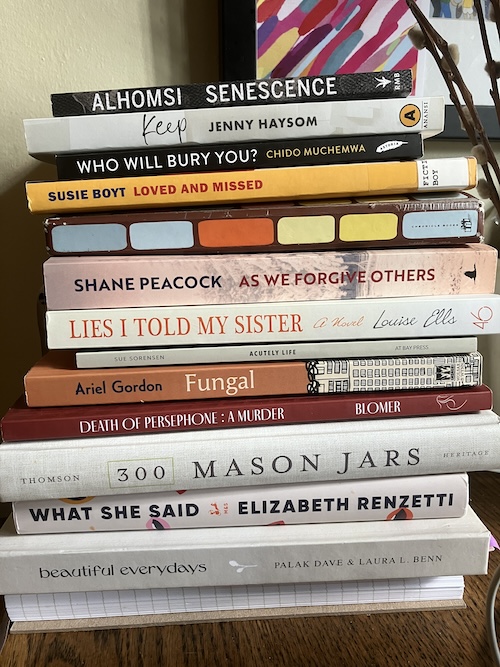
The day the clock falls back is my favourite day of the year—I’ve written about this over and over. How the extra hour is, of course, time to read in, which matters especially at a moment in which I seem incapable of reading less than five books at a time. It means that I woke up yesterday morning and proceeded to spend the next hour in bed, finishing THREE DIFFERENT BOOKS (and I’d just finished another the day before). And then after such a feat of completion, I started reading another book that was short enough and good enough—Susie Boyt’s LOVED AND MISSED—that I managed to read the whole thing in under 24 hours. And what a 24 hours it’s been. My family’s schedules obviously out of sync with the time change, which meant that dinner and all evening duties were concluded before 9pm, which is unheard of in my household. Everybody else was tired and went to sleep, but I just returned to reading, and the luxury of this time and this focus was such a pleasure to behold. (Again, it helped that I was reading a book that was so very excellent.)
One of the many book piled on my bedside table right now is Meditations for Mortals, by Oliver Burkeman, who writes in one reading about the reality of information overload. “How do you choose what to read?” somebody asked me recently in a DM, in the context of all the seemingly infinite books out there in the world, and the point of Burkeman’s book is the finite nature of human experience. And Burkeman offers the image of a river, how as readers what we do is dip into the current and pick out what we can, what we want to. No one is ever going to read all the things—there are not enough extra hours in the year, even though I’m doing my best to make a dent, for sure!—and nobody should feel bad for their failure to, and this was such a relaxing way to think about the stacks of books on various surfaces around my house that are constantly, dangerously, threatening to topple over.
September 18, 2024
On Emily-Splaining

People are weird on the internet. A couple of weeks ago, a comment turned up on a post I published more than four years ago about rereading Emily of New Moon, and this commenter was not having it, unleashing a diatribe of scolding. And not even for having stolen a copy of the book from my school library (which would have been fair!), but for having understood Emily within the context of Anne, and for judging a book by its cover. Of my trouble with the drowned barn cats, they wrote “If your delicate modern sensibilities are disturbed by this, well — you need to read other books.” OMG, SERIOUSLY, COMMENTER: DO YOU KNOW WHO I AM?? I have read ALL THE BOOKS. And then they proceeded to answer all the questions I’d posed in my post, which was really really annoying since these were actually the questions I’d had about the books when I was 9, and I’d actually worked most of them out by now. It was more than a little PATRONIZING.
But I’m not bringing this all up so you can be indignant along with me. (Okay, I am A LITTLE BIT). But instead because I also really understood where this annoying person was coming from—and perhaps this is why I’m especially indignant because I’m just the same. To ASSUME that you could explain L.M. Montgomery to ME! And I understand that there is a whole community of Montgomery scholars and historians, and they even have a society, and that’s fine, but I’m still quite sure that nobody there could have the connection to Montgomery and her work that I do. I’m entirely wrong about this, just in case that needs stating, but it doesn’t matter, because my connection to Anne and to L.M. Montgomery’s story feels so fundamental and so personal that it’s impossible to imagine that anyone else could precisely know what I’m talking about when I mention it. And of course they can, but there are parts of the story that were mine alone—my Anne of Green Gables clothespeg doll I bought in Fenelon Falls, the Anne of Green Gables Treasury I absolutely coveted from this folksy store at the mall and saved up for. When I was Anne for Halloween, the copies of the novel that were gifts from my Grandma. The time we were out on a boat with another family, and I asked my mom how Anne and Gilbert managed to make all their children because, according to Anne of Ingleside, they slept in separate bedrooms…
If that commenter is anything like me, they are possessive of their Emily. Other people might have their own Emily stories, but it’s not the same, and it’s the strangeness of these characters we got to know in our most formative years, the way it felt like they were speaking directly to our souls, but other readers were picking up the very same signals. The way that reading seems like such a solitary thing, a private universe, but there are so many of these, and the shock of realizing the connection may not have been quite so intimate after all.
September 9, 2024
My Stacky Authors
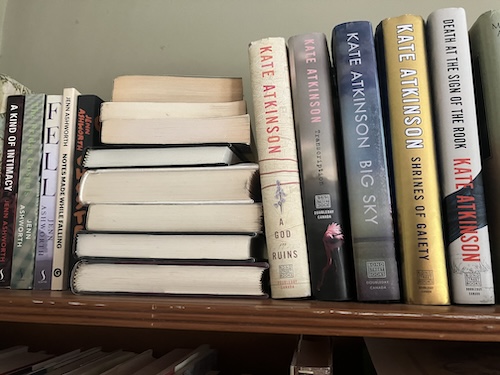
This weekend, Kate Atkinson joined an esteemed group of writers when her latest, Death at the Sign of the Rook (review to come! RAVE!), found its place in my personal library, and I determined that it was time for Atkinson to get stacky, which is what happens to authors who I like too much. And I actually kind of hate it, that I don’t get the pleasure of seeing books by my favourite authors with their colourful spines all in a row, but space is at a premium and I have to make it work (although my husband did recently suggest replacing one of our bookshelves with a taller one! SWOON!), but the only way I can accommodate the necessity of having 13 books by Atkinson on my shelf (does not even include the two of her earlier novels that I didn’t love and got rid of, which rankled the completest in me, but what can you do) is by stacking a bunch of them into a pile.
Which frees up so much space!! Room to breathe!!! Room for more books!! To be one of my stacky authors, really, is one of the largest literary compliments that I could pay you. You’d be in the company of Kate Atkinson, Joan Didion, Margaret Drabble, Jane Gardham, Penelope Lively, Hilary Mantel, Sue Miller (SO MANY L and M AUTHORS!), and Iona Whishaw.
Carol Shields is on the list now (there is more room among the Ss), for the next time shelf space gets tight.
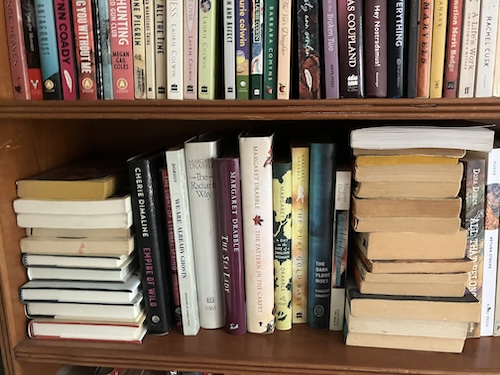
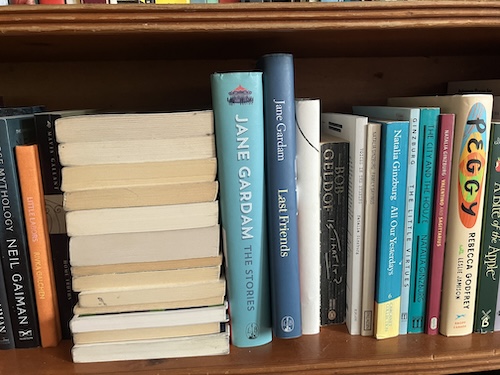
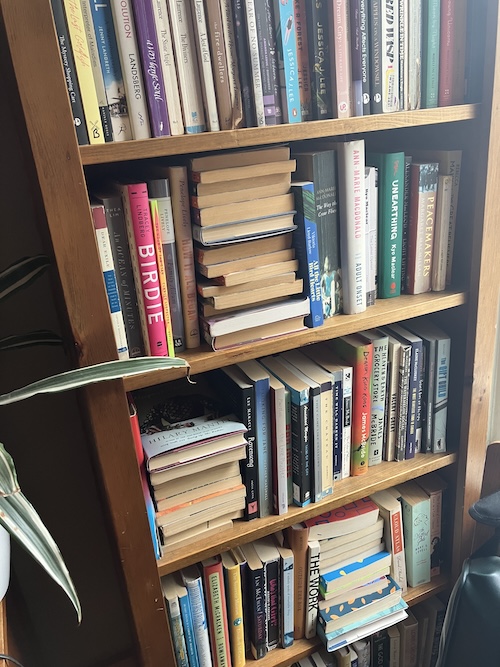
June 12, 2024
Weird Reading Place
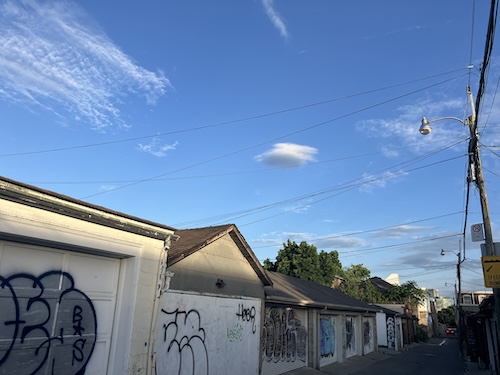
I returned Kelly Link’s THE BOOK OF LOVE to the library today, unfinished and with mixed feelings. I managed to read just over half of it, and if I could renew it, I think I would, but I can’t renew it (there is a line of people with holds who are waiting to get this GIANT novel [600 pages!] into their hands) and there is also a threshold of caring enough to get to the end that I just can’t seem to cross. Part of it is the tone of the book—it’s so even. And I don’t hate that, of course, and “uneven” is certainly a criticism, but yes, there is a steadiness to the narrative that’s the opposite of “gripping” or “exciting.” I’m also not deeply invested in the plot, which is all about magic, not my kind of thing at all (my experience of this book is similar to this one: “I finished it and I’m ready to tell you about it, because it’s Not My Sort of Thing, and yet I’ve read all 625 pages of it, even though it’s a genre I rarely touch. I’m even sort of mystified about why I ended up buying it, in hardback,” except that she finished it and I didn’t). If I could keep the book forever, I’d likely get to the end eventually, but that’s not a screaming endorsement, and also the book seems like it’s weighting me down a bit. I’m still in a weird reading place because I can’t go all-in on a 600+ page book I’m not that bothered about (this would likely kill me) so I’m reading another book as my “main book” but it’s really not not doing it for me, and I’m reading ANOTHER book (The Blue Castle, by LM Montgomery) in preparation for my June substack essay, but FOR SOME REASON IT FEELS LIKE MY ATTENTION IS SCATTERED. (I am also reading ANOTHER book, Shawn Micallef’s STROLL, which I am absolutely loving, and reading more avidly than I’d anticipating—I was expecting to read this book as a kind of walking guide, but it’s turned out to be an absolutely compelling, fascinating book to read when you’re not going anywhere all all). I’ve been more reading books quietly too, advanced reader copies (which usually aren’t my thing!) in preparation for Season Two of BOOKSPO, and that’s been good, but in general it seems like I’m reading 14 books at once and not getting anywhere with them, in terms of depth or toward and ending. And not being enthralled by a book is one of my least favourite states of being. I am not myself when I’m not reading something I love—it’s like going without lunch. It doesn’t help that it’s June and EVERYTHING IS HAPPENING and what I really really need is an afternoon in my hammock.
June 6, 2024
Message From the Middle
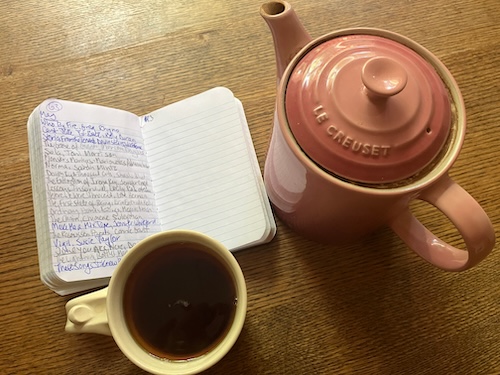
In December 2017, under the influence of Vicki Ziegler, and after much fretting and deliberating (was it really necessary to track my reads? Couldn’t I just read books like a normal person?), I finally started tracking the books I read in a notebook, which turned out to be the very best thing, and this week I reached the milestone of getting to the centre of my book of books. THESE THINGS I KNOW BY HEART, by Erin Brubacher, the 83rd book I’ve read this year, and the 1083rd book I’ve read since December 2017 when I began the notebook with LITTLE FIRES EVERYWHERE, by Celeste Ng. And I am so grateful to have this record, which is useful when anyone asks me what I’ve read lately (like I ever remember?) or I want to take a trip back in time to recall what I was reading on vacation in July 2019 (MIRACLE CREEK, by Angie Kim, PACHINKO, by Min Jin Lee, THE LAST ANNIVERSARY, by Lianne Moriarty), or later that summer when I was reading THE NEED, by Helen Phillips at Kew Beach, or the books that counted down the days before the world broke in March 2020 (POLAR VORTEX, by Shani Mootoo; DISFIGURED, by Amanda Leduc, all my little obsessions (when I reread Madeleine L’Engle’s Austin series in 2019, or 2018 when I read everything by Amy Krouse Rosenthal, falling in love with Sue Miller and reading EVERYTHING), the forgettable books that were forgotten, the UNforgettable books whose reminders make me feel so much (reading THE BURGESS BOYS while eating breakfast in a hotel lobby, how I couldn’t put it down). It’s not about the numbers, though the numbers are interesting too, but instead about the stories in the experience of reading the stories that the notebook has recorded, where over six years has taken me, bookishly and otherwise. And the other half of the notebook, its pages still blank. All that possibility, patiently waiting for each line be filled.
April 3, 2023
New Book Quiz!
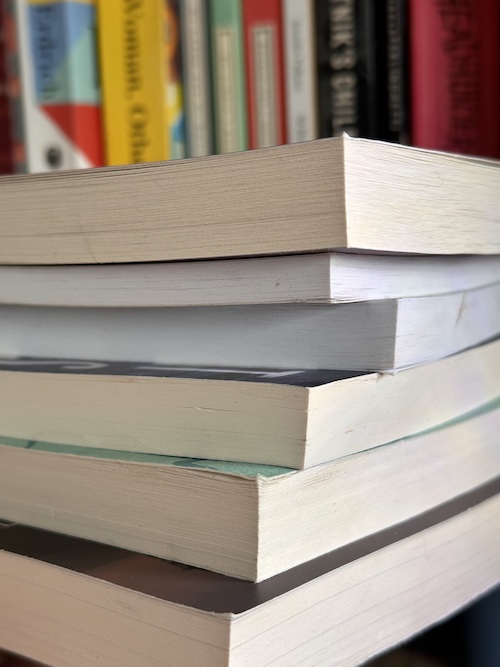
Which one of these fantastic books is your next favourite read?
Take my new quiz to find out!
Yep, I’m back with some literary matchmaking after far too long and I’m THRILLED to be setting readers up with some books I’ve loved lately…
September 23, 2022
My Hilary Mantel
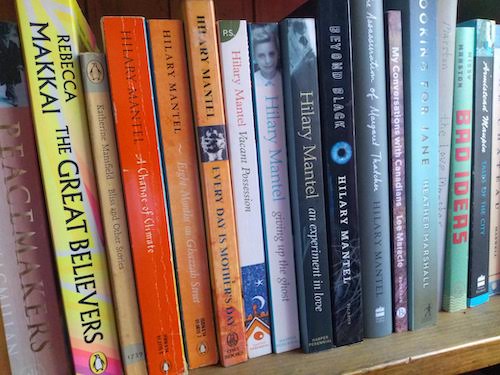
I arrived at Hilary Mantel during what turned out to be the most impressionable and formative parts of my reading life (so far!), during the years after my undergraduate degree when I was living abroad, first in England and then in Japan where my favourite occupation was buying Penguin paperbacks from Wantage Books in Kobe. This was the period where I first started reading favourites like Margaret Drabble, and Joan Didion, and yes, Hilary Mantel, whose own expatriate novels, EIGHT MONTHS ON GHAZZAH STREET and A CHANGE OF CLIMATE inspired the novel I’d write for my Masters thesis a few years later. It was her dark comic novels I loved best though, EVERY DAY IS MOTHER’S DAY and it’s sequel VACANT POSSESSION are horrifying and hilarious (and based on Mantel’s experience as a social worker; I’d also worked for social services while I lived in England and deeply recognized the disturbing realism in these works). You will notice I don’t have her historical works on my shelf—I read WOLF HALL, but (forgive me!) it just didn’t do it for me, which was FINE, because it certainly had enough other readers to go around. I think what I love about Mantel is how wide ranging were her passions and preoccupations over the years, which means there’s a Mantel shelf for every kind of reader and I am so grateful this is mine.
October 13, 2021
Class Reunion: ENG 369Y 20 Years Later
During my third year of undergraduate studies, from 2000-2001, I was part of ENG 369Y, a creative writing workshop led by Dr. Lorna Goodison through the Department of English at the University of Toronto.
For so many reasons, many illuminated below, this class would be an unforgettable experience, though it seemed especially remarkable when—two decades later—four of us from the class would all be publishing books within the same year and a bit.
- Souvankham Thammavongsa’s How to Pronounce Knife was published in April 2020, and it was awarded the Scotiabank Giller Prize that year, as well as the 2021 Trillium Book Award, among other accolades.
- Faye Guenther’s Swimmers in Winter came out in August 2020, and it has been a finalist for both the Toronto Book Award and the 2021 ReLit Award.
- My book, Waiting for a Star to Fall, arrived in October 2020, and the Montreal Gazette called it, “Subtly complex […a] romantic drama tailor-made for the #Metoo age.”
- And Rebecca Silver Slayter’s The Second History found its way into the world this summer, with no less than Lisa Moore writing that it’s “one of the most honest renderings of romantic love I’ve ever read. [A] truly mesmeric story, tender, unflinching, quakingly good.”
To me, the serendipitous occasion of our new releases after all this time seemed like an splendid opportunity for us to reconnect and reflect on our time together, as well as so much that we’ve learned about writing in all the years since then, and so the four of us shared our thoughts and ideas via email.
tell us about 20 years in the writing life, about the trajectory of your writing life since our class together in 2000.
Kerry Clare: I don’t think I had a focussed relationship to writing at all in the first ten years after our class together, even as I completed a MA in Creative Writing at the University of Toronto from 2005-2007. There is a line in Annie Dillard’s The Writing Life that I may have misremembered, but it’s about a superficial idea of writer-dom being analogous to one admiring the way one looks in a particular hat, and I always thought she was talking about me, which was mortifying.
When I finished graduate school, I worked for two years reading financial documents all day long, which was not fun, but gave me stability and a salary, though little in the way of creative inspiration. It also gave me parental leave benefits, which I used when I had my first child in 2009, and becoming a parent really seemed to up the stakes for me writing-wise. I became invested in the world in a more meaningful way, and therefore had more to write about. My first big success in writing was an essay about new motherhood I published in 2011, and this led to my first book, the essay anthology The M Word: Conversations About Motherhood, which I edited and was published in 2014.
At this point, I wasn’t sure that writing fiction was going to be my destiny, and was even making peace with that (throughout this entire period, I’ve been blogging, which has been a creative lifeline), but then something clicked shortly after my second child was born and I finally figured out how plot works. My first novel, Mitzi Bytes, was published in 2017, and I’ve been writing them ever since, and though I am constantly terrified that one day I won’t know how to do it anymore, it seems to keep happening.
Souvankham Thammavongsa: I am not a very good example of a writing life because my trajectory isn’t a simple one and it is not for everyone. I don’t think anyone would want it. I worked for fifteen years in the research department of an investment advice publisher, I counted bags of cash five levels below the basement, I prepared taxes. This work helped me write what I want and it didn’t take away my desire to write. I still have that from 2000, this desire to write, but it wasn’t anything someone taught me.
Faye Guenther: I stayed at the University of Toronto to do undergraduate and graduate degrees in English. Then I went to York University and did a PhD in English. While I was a student during those years, the jobs I had to support myself weren’t related to writing, but they showed me things about the world and this is useful to a writer. I’ve found that no matter what you do, the key is to make the time to write. My writing life has also been shaped by who I’ve met along the way, including fellow writers. In 2017, I published a chapbook of poems and short fiction, Flood Lands, with Junction Books. In 2020, I published a collection of short fiction, Swimmers in Winter, with Invisible Publishing.
That is probably most of what I’ve learned in these two decades. How to take in all the advice, all that you’ve learned from other things you wrote, from things you read, from other writers, and then listen very hard for the tiny sound of this book calling for what it needs from you.
Rebecca Silver Slayter
Rebecca Silver Slayter: I decided to stop writing not long after that workshop. I think, to reverse what Souvankham said, I worried my desire to write might be something someone had taught me. That I had lost track of why I wanted to write at all.
So I stopped for a year. Or two. Or three? It felt like forever because I was 20-something and everything was forever.
And meantime I decided to make my life and work writing-adjacent. I interned at Quill & Quire and The Walrus. I worked for a startup children’s publisher. I did odd jobs to complete the financial math, yardwork and errands. Eventually I was hired for my dream job, working as managing editor for Brick literary journal.
Sometime in the midst of that, I met my husband, and told him, proudly, how I had made the tough, mature decision to give up writing, and he listened and nodded and then said, I know you are a writer, with such certainty that I didn’t know how to doubt him and I began writing again. And I found to my great joy what I had been missing in those earlier writing years; a desire to write that easily overtook the desire to be a writer.
I did graduate studies in Montreal, where I wrote the first draft of my first novel, In the Land of Birdfishes. When I graduated, I returned to Nova Scotia, and bought a house for a song in Cape Breton, which I will be renovating for the rest of my earthly days.
This is for me a very good place to write, near the ocean and the highlands, in a community where music and storytelling are woven into everyone’s daily life. Here I published my first book and then wrote and rewrote and rewrote my second book, which was just released this summer: The Second History. It took me eight years from first draft till now, mostly because I tried to write it faster than I’m able to. It turns out I’m a writer who needs to take my time…
That is probably most of what I’ve learned in these two decades. How to take in all the advice, all that you’ve learned from other things you wrote, from things you read, from other writers, and then listen very hard for the tiny sound of this book calling for what it needs from you.
what was the best thing the writer you were in our classroom had going for them? And what writing advice would you give that previous incarnation of you? (Though would you even have taken it?)
ST: My intuition. I listened to everyone, and knew when not to. This taught me how to pick through edits. When we see edits, sometimes it’s about the person and their life experience and it doesn’t mean they are right or know but you have to be generous and allow them to have their thoughts.
I wouldn’t give myself any advice. I think advice can be a disservice to a writer. There’s a lot I didn’t know and I want myself to not know and to live in that not-knowing in order to know it. I want myself to encounter and work through those difficult and lonely moments. I don’t want anyone to hold my hand or do me any favours or make it easier or easy. I like the difficult, and I want to continue with that difficulty.
RSS: One of my clearest memories of that workshop was of Professor Goodison saying, as we discussed one of my poems, “You come from preachers, right?”
I was tongue-tied with confusion. “What?”
“Your people, they’re preachers, right?”
I had absolutely no idea what she meant. “No….” I stammered.
“Then why are you preaching at me?” she asked.
Oof. Caught. I was constantly preaching. Trying to find a much-too-simple way of understanding much-too-large things. I had a weakness for sentences that began like “Love was…”
I think somewhere in this is both my weakness and strength as a writer (probably as a human too). It is writing-in-bad-faith to just polish up pretty turns of phrase that sound truish. To go around making tidy summaries of untidy things. But… I think if I mine deeper I can find underneath that impulse what drives me to writing still, and to reading itself… The sense that there is some luminous other way of noticing the world that will make it brighter, stranger, more visible. That certain words can be incantatory, a pathway to looking again and seeing more.
I have two small children, and have found it astonishing to witness language dawn within a person who formerly had none. How each child altered a bit around the language they used. How they learned what it was then to be nervous, even tired, even thirsty. How what began as the ragged, indeterminate longing of a baby’s howl became so clear, so precise, so unmysterious. And I miss a bit the mystery. The wonder of watching a peer being who doesn’t know what yesterday is. But I think there’s another way that language can give us back what experience has made ordinary. And I think that’s what I was searching for twenty years ago and search for still, but with a few degrees more purpose. And a lot more joy.
So I would maybe advise myself something like this: First, don’t write any more poetry. You are very bad at it. And for a time, don’t write at all. Wait until the desire to write is something you have to resist. Wait until it wells up in you. And then go find the joy of writing words that make you look again, more deeply.
I wouldn’t give myself any advice. I think advice can be a disservice to a writer. There’s a lot I didn’t know and I want myself to not know and to live in that not-knowing in order to know it.
Souvankham Thammavongsa
FG: I remember being openhearted and creative. The writing advice I would give my earlier self is to be bolder. I think when boldness is combined with a practice of being open with yourself and to the world, there is a sharpening of creative focus that can happen and a strengthening of creative perception, no matter what challenges life brings.
KC: The writer I was in our classroom had no idea how much she didn’t know, and far more confidence that she deserved to have, and I’m so happy she did because being 21 is hard enough. I was not a serious person or a serious writer AT ALL. (I remember that Souvankham appeared to be both, and it was such a powerful example for me, though I think I was still too young to fully appreciate it.)
What a tremendous opportunity to develop my skills that class should have been!! But I did not work all that hard, honestly, too busy checking out my look in the hat, remember? I mainly wrote poetry because you could finish a piece in a few minutes. This did not mean my poetry was good, however, although I think sometimes some of it was.
If I could give that writer I was any advice it would be to write something REAL, instead of something you think sounds like something that could be real. (And find writers you love, instead of reading all the writers you’re supposed to love.)
For the record: I would not have listened.
what roles have literary journals and small presses played in your writing career?
RSS: I know literary journals and small presses better as a worker than as a writer. But I am shaped permanently by my years at Brick literary journal, and by the trips I made then, twice a year, to Coach House Press, where the journal was designed at that time.
The Coach House basement was a kind of church I visited like a disciple of those beautiful machines for cutting pages and laying type … and of the people who made them run and knew the stories of an older Toronto and the mesmerizing adventures then had by not-yet-famous writers. In a way that is both corny and essentially true to me, that is what I feel a tiny part of when I write: all the people in all those tiny offices and studios and nooks making small-press books and magazines; their labours of love, their care and bravery, those parallel arts of ink and paper, alongside those of prose and plot.
They taught me what was foundational to writing; the courage and the care of the work. And the kinds of community it can build.
FG: Reading literary magazines gave me an awareness of community. They were the first space where I was published, and I know this is true for many writers. Smaller presses often foster innovative and ground-breaking work. They frequently publish voices and stories that historically have been marginalized. I think smaller presses are important for energizing and sustaining a vibrant creative culture.
My first piece of published fiction was in The New Quarterly in 2007. I will never forget the joy of receiving that acceptance
Kerry Clare
KC: My first piece of published fiction was in The New Quarterly in 2007. I will never forget the joy of receiving that acceptance, especially in the wake of the novel I’d written for my Masters thesis that went nowhere (because it was boring!) because I was really feeling kind of discouraged, and then this message from the universe arrived suggesting maybe I should keep going after all. In the next few years, I would publish pieces in TNQ and other journals, and the high of an submission being accepted has never diminished for me. And then Goose Lane Editions, a remarkable Canadian indie press with an impressive history, published The M Word, and did the book such justice. Without literary journals and small presses, I’d be nowhere.
ST: Literary journals teach you things a writing class or editor or a dear friend and family cannot. They don’t love you and are not beholden in any way. They teach you about rejection—what that feels like, what to do with it. They are often the first place where we get to see ourselves in print. It’s important for a writer to understand the difference between seeing yourself in print and publishing a book. They are not the same.
what are your favourite memories of our class?
ST: I remember the talent and fun. There were so many writers in that class who are more talented, more ambitious, more interesting…but they aren’t here, or with books. They became lawyers and engineers and professors. I always keep that in mind. Having a book doesn’t mean I am good.
KC: I have so many memories! I don’t know if we were particularly interesting as a group, or if it was the work of Professor Lorna Goodison in creating community, or just the particular mix of experience and personalities in our class, but I felt very connected to everyone. I think we were a well written cast of characters.
I remember Souvankham on the very first day, and how she impressed me so much with her sense of herself. I remember we had to write a poem inspired by postcards, and mine had a field of sunflowers and said, “Welcome to Michigan,” and I wrote a poem with the line, “I won’t forget the motor city.” I remember REDACTED who wrote a poem with the line, “Let’s make love in the astral plane,” and I was seriously impressed by how sophisticated he seemed. And someone else who wrote a poem about someone sucking on her toes while listening to Robbie Robertson sing “Somewhere down the crazy river.” Everyone seemed to be having a lot more sex than me. (One could not have been having less sex than me.)
I remember Faye seemed especially interesting, partly because she seemed kind of badass with a shaved head, and we always sat in opposite corners of the room. And how I was in love with the name “Rebecca Silver Slayter,” which belonged to the woman who often sat in the same corner as me and whose work I felt very drawn to.
I think it’s kind of wonderful that in addition to the four of us, plenty of others in that group have gone on to very interesting careers in academic, television writing, and more.
One of my memories of the class was discovering what a literary reading could be—the ways prose and poetry can be shared beyond their existence as words on a page and become something like music in a public space.
Faye Guenther
FG: I’m grateful to have had the opportunity to learn from our teacher Dr. Lorna Goodison. One of my memories of the class was discovering what a literary reading could be—the ways prose and poetry can be shared beyond their existence as words on a page and become something like music in a public space.
RSS: This sounds like very cheap, opportunistic flattery, but honestly, though I remember well many of the talented, interesting writers in the class and their poems and stories, what I remember most clearly is the three of you.
I remember how beautifully Souvankham’s work was always laid out on the page in lovely, tiny type—the form so perfectly echoing the work itself, the grace and economy and polish of her words; how her work seemed always already complete, and I was stumped on how to write any feedback that didn’t just feel like tampering.
How Kerry’s writing was funny and powerful at the same time, and I hadn’t even known that was possible. How she seemed so at home both on the page and in the classroom, warm and open and at ease in a way that awed me. I remember Faye’s compassion for her characters, their rich interiority. How reading her stories felt like someone whispering in your ear, that intimate.
My strongest memory of the class was the first one. When we went around the room and each offered up our names.
Souvankham was near the end, seated at the table perpendicular to the one where Professor Goodison sat.
After she said her name, Professor Goodison asked, “So what do you want to be called?”
I was caught off guard by the question, but Souvankham answered clearly and immediately. Without blinking or skipping a beat, she said: “I want to be called a writer.”
Professor Goodison looked at her and Souvankham looked back. Then she said, “I’m going to call you Sou.”
And I was as astonished as if Souvankham had wafted out of her seat and up into the air between us. I was at that time so uncertain, so full of twenty-one-year-old desires to be interesting, to be brave, to be invisible and/or famous. I would have probably told Professor Goodison she could call me whatever she wanted. Or tried to guess what she might prefer me to be named.
Year by year over these last twenty, I get a little closer to what Souvankham already had then. That certainty. That clarity of purpose and identity as a writer that struck me silent when I was twenty-one.
